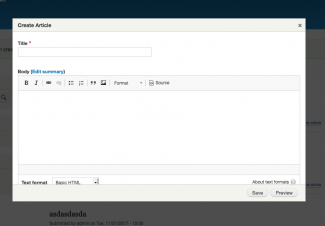
With Europe threatening $25,000,000 fines and Facebook losing $80,000,000,000 of stock value, are you paying attention to data privacy yet? If millions and billions of dollars in news headlines never grabbed you, maybe you've noticed the dozens of e-mails from services you'd forgotten ever signing up for, declaring how much they respect your right to control your data. These e-mails are silly and possibly illegal, but they nonetheless welcome us to a better world of greater privacy rights and people's control of their own data that we web developers should embrace.
The huge potential fines (for large companies, the sky's the limit at four percent of global revenue) come from the European Union's General Data Protection Regulation, and they signal that the GDPR is more than a suggestion. If you're not a European-based company, the European Union does not intend to discriminate: You're still liable when citizens of member states use your services or are monitored by you.
Don't lose sleep for Facebook's wealthy stockholders. That sizeable dip in Facebook stock was not due to the impending GDPR enforcement, but came in the wake of the Cambridge Analytica scandal. Since then, the privacy-invading monopoly so many rich people are betting on regained its market cap and then some. (GDPR-related lawsuits are just starting.)
There's a lot of good resources for GDPR-proofing existing sites (see the bottom of this article); the work ranges from trivial for most sites to monumental tasks for web developers who, fortunately for me, aren't me (and who have finished their labor, I hope, as GDPR enforcement took effect today).
The fun and exciting part starts when we get to build new sites or new features on existing sites and from the beginning put privacy by design into practice (which also is in the law). And yes, I'm referring to complying with a continental government's regulations as fun and exciting.
This goes well beyond an organization's web site, of course. Web developers may be the ones to introduce it to organizations, though, so we should be prepared. Here's the gist.
Organizations must request any personal data in clear and plain language describing the specific pieces of information and how it will be used, such that consent can be given freely and unambiguously through an affirmative action.
This means you need to be always thinking of why you are collecting information, and not collecting information you don't need at all, and deleting any personal information you no longer need. You can collect nearly anything if you get clear consent, but if you have a legitimate business interest for the data you collect, you'll have even fewer requirements, and the people who use your site or service will have a smoother experience.
You further need to allow people to export their personal data, to rectify inaccurate data, and to challenge decisions you make on the basis of their personal data. If you don't have a legitimate business interest for the data (or it's overridden by people's rights), then you must also provide a mechanism for people to erase their data.
If your business interests involve spying, lying, or trying to manipulate people into bad financial, personal, and political decisions— maybe re-think your business. At the very least, try to avoid becoming part of the infrastructure for a police state.
It's GDPR day, a wonderful opportunity to think ethically, and explore another way to put your customers, clients, or constituents first!
Resources
From most thorough to most practical.
- The whole regulation
- The regulation, as a web site, with a page per section
- A quick-read news article on the likely implications
- The business case for complying when not legally obligated
- Official document "The GDPR: New Opportunities, New Obligations" (PDF)
- UK information commisioner's guide to GDPR for small and medium organizations
- Guidance: Legitimate Interest Assessment (PDF)
- Privacy policy recommendations
- General Data Protection Regulation Drupal module, with a built-in checklist and tools for tracking and deleting sensitive data





Comments
Add new comment